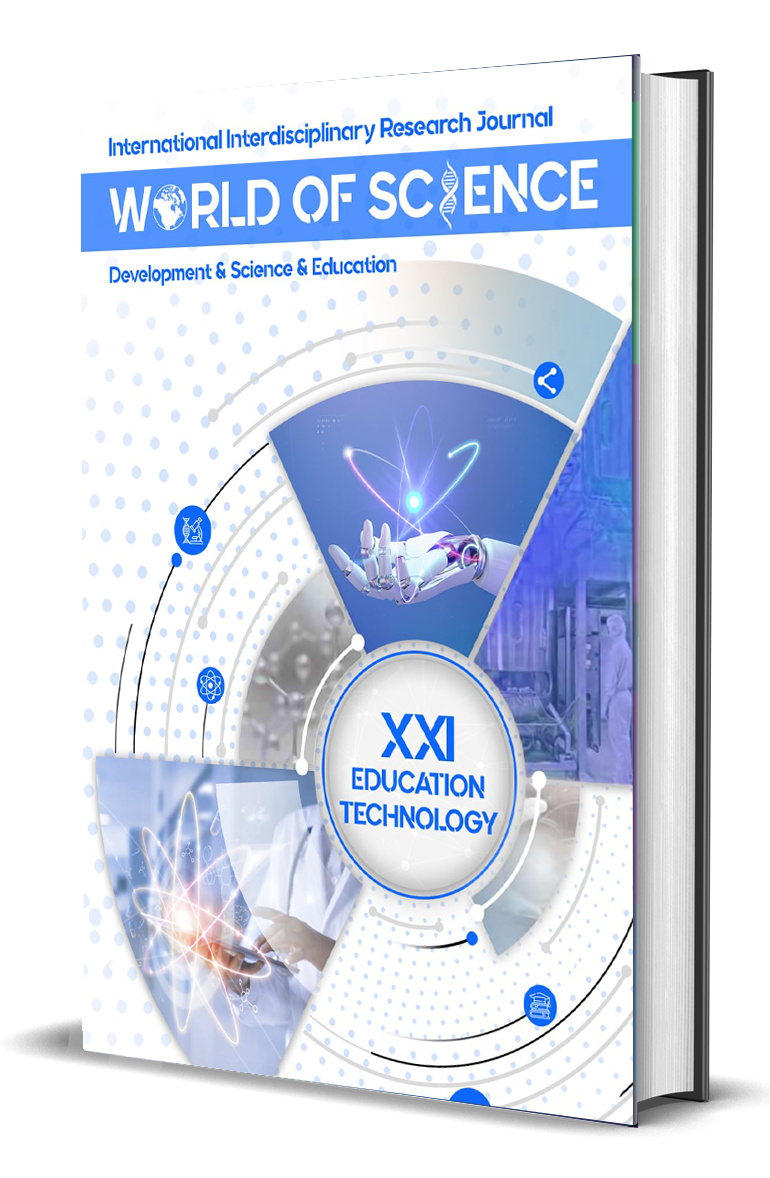THE IMPACT OF PERSONALIZATION ON STUDENT ENGAGEMENT IN ONLINE LESSONS: ADAPTIVE PATHS, INTEREST-BASED LEARNING, AND AI INTEGRATION
Keywords:
individual moslashtirish, onlayn ta’lim, o‘quvchilar ishtiroki, moslashtirilgan ta’lim, qiziqish asosidagi ta’lim, sun’iy intellekt, raqamli ta’lim strategiyalari.Abstract
Mazkur maqolada onlayn ta’limda o‘quvchilar e’tiborini jalb qilishni oshirishda individual moslashtirishning o‘rni tahlil qilinadi. Unda moslashtirilgan o‘quv yo‘llari, qiziqishlarga asoslangan ta’lim va sun’iy intellekt texnologiyalarining o‘quv jarayoniga ta’siri ko‘rib chiqiladi. Tadqiqot onlayn darslarni yanada qiziqarli qilish uchun qanday strategiyalar samarali ekanligini aniqlashga qaratilgan. Individual moslashtirish o‘quvchilarning motivatsiyasi, ishtiroki va mustaqil o‘rganish ko‘nikmalarini rivojlantirishda muhim vosita sifatida baholanadi.
References
1. Holmes, W., Bialik, M., & Fadel, C. (2019). Artificial Intelligence in Education.
2. Ryan, R. M., & Deci, E. L. (2020). Intrinsic and extrinsic motivation from a self-determination theory perspective: Definitions, theory, practices, and future directions. Contemporary Educational Psychology, 61, 101860.
➡️ Mentioned in Section 1: Conceptual Foundations and Theoretical Framework, when discussing SDT as the theoretical base for personalization.
3. Derakhshan, A., & Ghiasvand, F. (2024). Exploring the use of AI in EFL classrooms to boost learner motivation. Turkish Online Journal of Distance Education, 25(1), 20-34.
➡️ Referenced in Section 1 to support evidence that AI increases intrinsic motivation.
4. Virtanen, T., Kumpulainen, K., & Vainikainen, M. P. (2018). The role of student agency in personalized learning. Computers & Education, 126, 107-117.
➡️ Used in Section 1 as support for the learner-autonomy benefits of personalized education.
5. Pane, J. F., Steiner, E. D., Baird, M. D., & Hamilton, L. S. (2017). Informing Progress: Insights on Personalized Learning Implementation and Effects. RAND Corporation.
➡️ Used in Section 2 to show data-backed improvements from adaptive learning models.
6. Conati, C., & Kardan, S. (2013). Student modeling: Supporting personalized instruction, from problem-solving to exploratory open-ended activities. AI in Education, 41(1), 345–352.
➡️ Mentioned in Section 2 discussing the motivation and satisfaction benefits of adaptive systems.
7. Kim, J., Park, H., & Lee, J. (2020). The role of feedback in adaptive systems: A large-scale study. arXiv preprint arXiv:2009.08976.
➡️ Cited in Section 2 regarding how real-time feedback in adaptive tools enhances engagement.
8. Sajja, N. K., Gupta, D., & Sharma, R. (2023). AIIA: An Adaptive Intelligent Instructional Assistant. arXiv preprint arXiv:2309.10892.
➡️ Used in Section 2 for describing modern adaptive AI architectures.
9. Weng, X., & Zhang, Y. (2025). Gaze-based personalization in virtual classrooms. arXiv preprint arXiv:2501.07883.
➡️ Mentioned in Section 2 on adaptive learning triggered by attention-tracking.
10. Cordova, D. I., & Lepper, M. R. (1996). Intrinsic motivation and the process of learning. Journal of Educational Psychology, 88(4), 715–730.
➡️ Discussed in Section 3 as a foundational source on interest-based motivation.
11. UNESCO. (2022). Learning for Peace and Sustainable Development. UNESCO Publishing.
➡️ Used in Section 3 on the importance of culturally relevant interest-based education.
12. Saifullah, M., Ahmad, R., & Putra, S. (2023). Chatbot-supported LMS in Indonesia. DE Journal, 12(2), 105–120.
➡️ Referenced in Section 4 as empirical evidence for AI-chatbot effectiveness.
13. Holmes, W., Bialik, M., & Fadel, C. (2019). Artificial Intelligence in Education: Promises and Implications. Center for Curriculum Redesign.
➡️ Briefly mentioned in Section 4 about real-time AI support and teacher workload.
14. Walkington, C. (2013). Using adaptive learning technologies to personalize instruction. Journal of Educational Psychology, 105(4), 932–945.
➡️ Cited in Section 5 on personalization effects in mathematics.
15. OECD. (2020). Digital Education Outlook: Pushing the Frontiers with AI. OECD Publishing.
➡️ Mentioned in Section 5 on student satisfaction and technology use.




